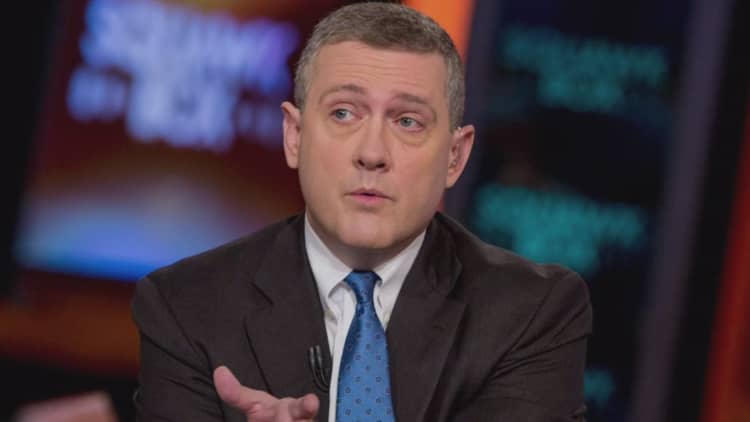
Financial markets have a more appropriate reading now on the chances of a U.S. interest rate rise in June than before, St. Louis Federal Reserve President James Bullard said on Thursday.
"I think they read the minutes correctly," Bullard told reporters after a speech in Singapore, referring to the minutes of the Fed's latest policy meeting in April.
Global investors, many of whom had assumed the Federal Reserve was in no rush to raise interest rates, were jolted last week by the minutes which suggested most policymakers felt the U.S. economy could be ready for another rate increase in June.
Bullard said is keeping an open mind on whether the Fed should raise interest rates at its June 14-15 meeting, adding that he wanted to see economic data that is available then.
"I'm keeping an open mind, I want to look at the data as it's available at the meeting," Bullard told reporters.
Bullard said in his speech that U.S. labour markets are relatively tight and may put upward pressure on inflation, echoing comments he made earlier this week in Beijing.
"By nearly any metric, U.S. labour markets are at or beyond full employment," Bullard said.
Asked what sort of payroll number would justify a rate hike in June, he said: "I don't think I'd want to commit to a particular number. The labor market reports have many different aspects to them and you'd have to look at the totality of the report."
But he added that the general message from labour markets was that performance has been very strong.
"It would take a very dire report to undo all the charts that I showed you and say that the labor markets were not strong, all of a sudden," he said.
When asked about the UK referendum on June 23 on whether to leave the European Union, Bullard said nothing would change immediately even if Britons were to vote in favor of leaving.
"I do not think Brexit is the global financial event that it's being made out to be," he said in response to a question from the audience.
"Even if there's a leave vote, all that means is that you would restart trade negotiations and this would lead to new trade arrangements," Bullard said.
"I think that there's a lot of continuity between the day before the Brexit vote and the day after," he said.
While recent comments by Fed policymakers have put a possible rate hike this summer firmly on the table for discussion, prompting some adjustments in financial markets, some investors remain skeptical the Fed will pull the trigger so soon.
U.S. interest rate futures are still pricing in only about one-third chance of a rate hike in June and about a 60 percent likelihood by July.



